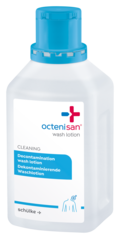
MRSA - The silent danger
October 2 is World MRSA Day. This day is intended to draw attention to the importance of antibiotic-resistant pathogens such as MRSA (methicillin-resistant Staphylococcus aureus) for our health and the threat they can pose. Every year, around 33,000 people across Europe (1) die from an infection with multi-resistant pathogens. schülke's product portfolio makes a significant contribution to reducing the risk of infection and protecting the health of patients.
New antibiotics have top priority
In view of the global emergence of drug-resistant pathogens, antibiotics are becoming increasingly ineffective. Against this backdrop, the WHO committed to a global action plan to combat antibiotic resistance in 2015 and published a list of pathogens that have priority in the development of new antibiotics in 2017. Methicillin-resistant Staphylococcus aureus (MRSA) is one of the pathogens with the highest priority. In addition, the WHO emphasizes the importance of infection prevention and control strategies in reducing healthcare-associated infections (2).
To raise awareness of MRSA and promote commitment to MRSA prevention and control measures in the healthcare sector, we would like to share our knowledge of MRSA and contribute to this with our schülke products
Staphylococcus aureus is one of the most common facultative pathogens that colonize inconspicuously on body surfaces and only cause infection when the immune system is weakened. Up to 30 percent of people worldwide are colonized with Staphylococcus aureus (3). The ratio of methicillin-susceptible (MSSA) to methicillin-resistant (MRSA) Staphylococcus aureus isolates varies greatly in Europe and is < 5% in Germany, for example, compared to > 25% in Portugal (4).
Colonization with MSSA or MRSA is not a clinical problem per se. However, under certain conditions, Staphylococcus aureus can cause a variety of mild to severe invasive infections. These infections usually occur in the course of medical treatment and include, among others
- Bacteremia or sepsis
- Pneumonia (lung inflammation)
- endocarditis
- Wound infections and post-operative wound infections
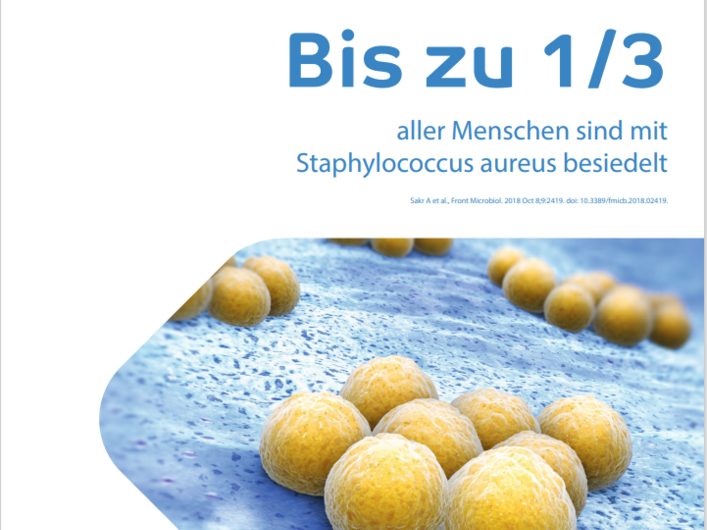
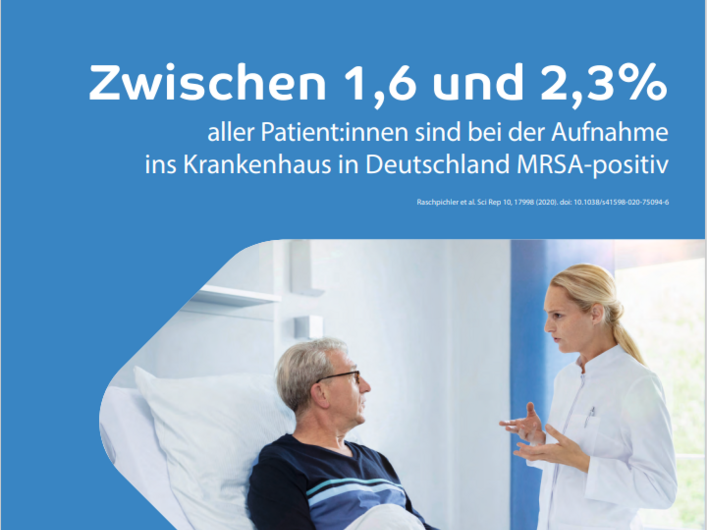
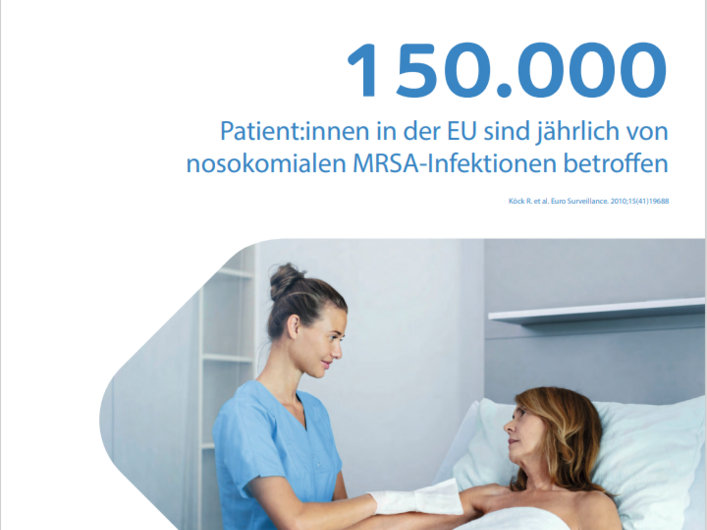
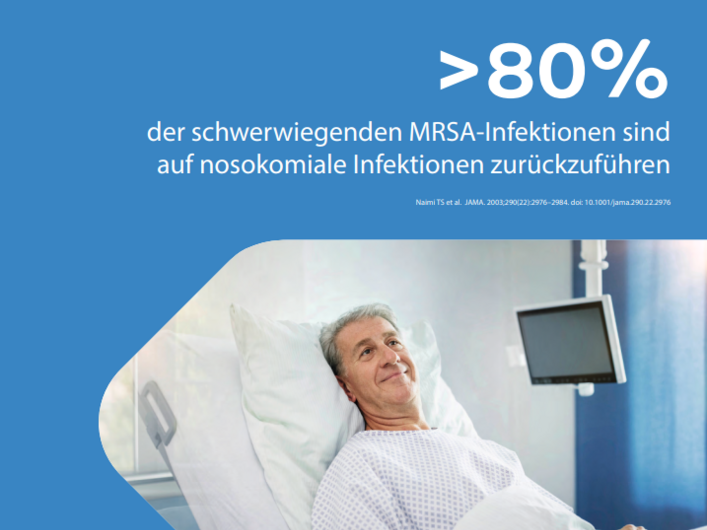
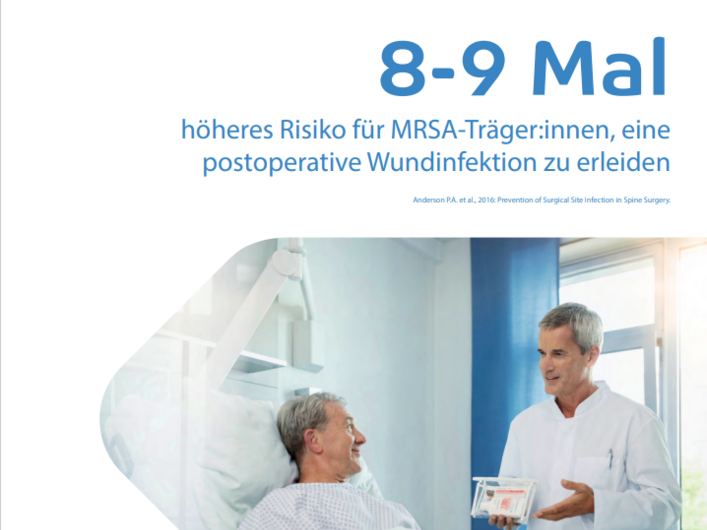
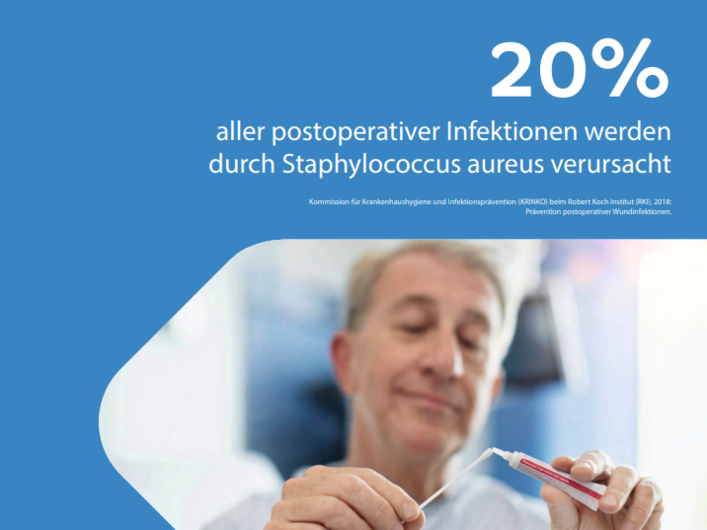






MRSA prevention saves lives
Nasal colonization with MSSA, for example, is associated with a six to seven times higher risk of developing a postoperative wound infection. In the case of MRSA colonization, the risk is even up to nine times (5) higher than in non-colonized patients. The clinical picture of infections caused by MSSA and MRSA does not differ. However, in older patients with a post-operative wound infection caused by MSSA, mortality is increased fivefold, while surgical site infections caused by MRSA lead to an up to elevenfold (6) increase in mortality. Therefore, the prevention of MRSA transmission and infection is crucial.
schülke's contribution to the fight against MRSA
Many MRSA infections can be avoided through consistent hygiene such as thorough hand washing and disinfection as well as careful (post-operative) wound care. The schülke product portfolio makes an important contribution in the fight against the silent danger of MRSA.
Sources:
(1)https://www.rki.de/SharedDocs/FAQ/Krankenhausinfektionen-und-Antibiotikaresistenz/FAQ_Liste.html#:~:text=Etwa%2030.000%20bis%2035.000%20Patienten,zwischen%201.000%20und%204.000%20liegen.%22
(2) https://www.who.int/news-room/fact-sheets/detail/antimicrobial-resistance
(3) Sakr A, Brégeon F, Mège JL, Rolain JM, Blin O. Staphylococcus aureus Nasal Colonization: An Update on Mechanisms, Epidemiology, Risk Factors, and Subsequent Infections. Front Microbiol. 2018 Oct 8;9:2419. doi: 10.3389/fmicb.2018.02419. PMID: 30349525; PMCID: PMC6186810.
(4) ECDC, Antimicrobial resistance surveillance in Europe, 2023
5: Anderson et al, 2017, Neurosurgery
6: McGarry S.A. et al, 2013: Surgical-site infection due to Staphylococcus aureus among elderly patients: Mortality, duration of hospitalization, and cost.
Discover our products

octenisan® md nasal gel
intended to be used for moistening and decontamination by physical cleansing of the nasal vestibules as well as for supportive ...
octenisan® Set
octenisan® wash lotion and octenisan® md nasal gel for preoperative decontamination of skin, hair and nasal vestubles

Data protection notice
We use analysis methods (e.g. cookies) to measure how often our website is visited and how it is used. We also use cookies to link your page visits and website usage with your customer data stored in our CRM system in order to be able to address you individually, i.e. based on your interests and usage. We alsowe embed third-party content from other providers (e.g. videos). We have no influence on further data processing and any tracking by the third-party provider.In this context, we also use service providers in third countries outside the EU that may not guarantee an adequate level of data protection, which entails the following risks Access by authorities without informing the data subject, no data subject rights, no legal remedies, loss of control.By hiring us, you consent to the processes described above. You can revoke your consent with effect for the future. You can find more information in our privacy policy





















